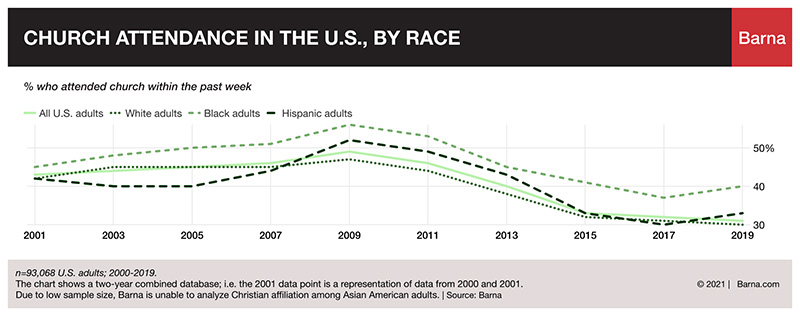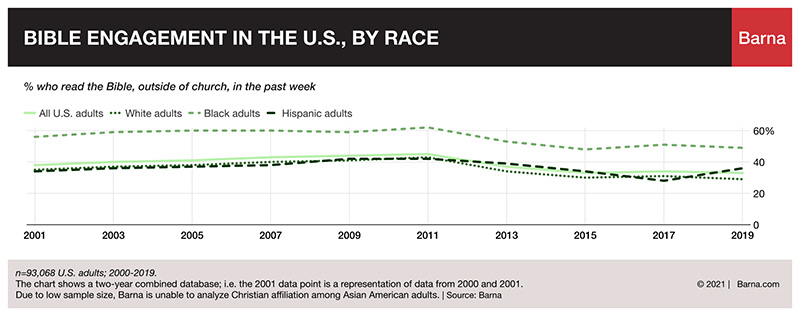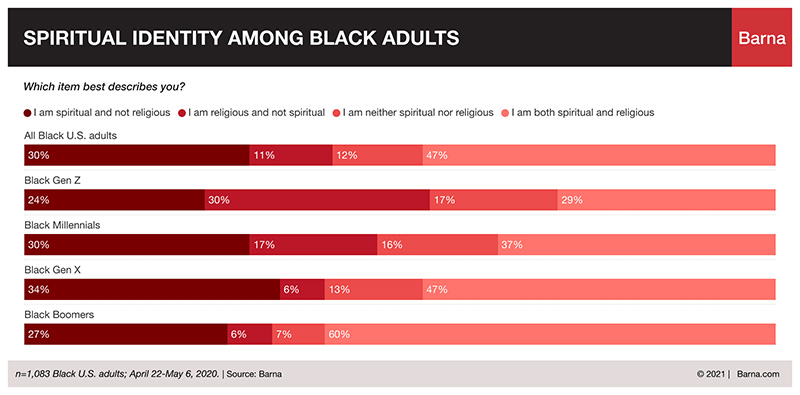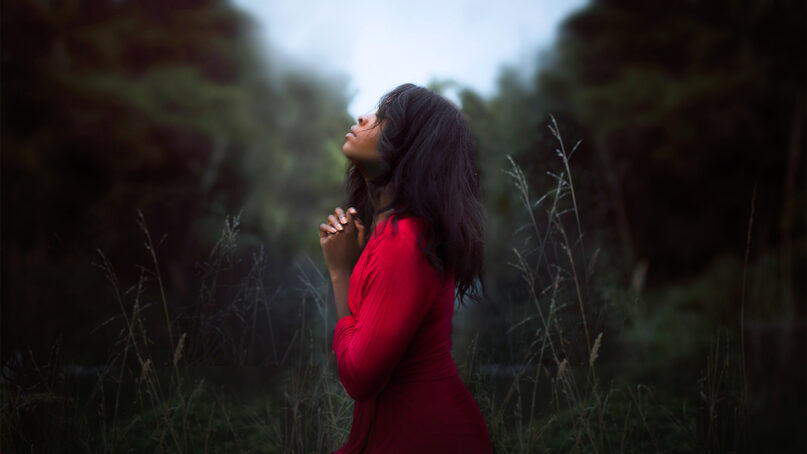(RNS) — Black adults attend church and participate in Bible studies more than other U.S. adults, but younger Black Americans are less likely to identify with the Christian faith than older generations, a new Barna Group report shows.
In the midst of the COVID-19 pandemic, half of Black church attenders estimated they attended services weekly, compared to 29% of the general Black population. Boomers tended to be the most engaged in weekly worship compared to younger generations.
The California research firm on Friday (April 16) released a new segment of its “Trends in the Black Church” report that looks at the spiritual practices and identity of Black Americans and African American churchgoers.

Graphic courtesy of Barna
Pre-pandemic, Black adult church attendance appeared to be on the rise, with 40% saying in 2019 they had attended a service in the past week, up from 37% in 2017. U.S. weekly church attendance overall continued its decline to 31% in 2019.
RELATED: Want to understand Black experience? Learn about African American faith, survey finds
About half of U.S. Black adults (49%) were engaged in Bible reading from 2001 to 2019, more than any other racial/ethnic group and significantly more than U.S. adults as a whole (33%). Bible reading among Black Americans has changed very little over the years, even as other measures of religiosity have dropped, according to the study.
In 2020, half (51%) of Black church attenders said they usually attend a church Bible study, under normal circumstances, at least every other week.

Graphic courtesy of Barna
In recent years, religious affiliation of African Americans has decreased, and an increasing number self-identify as “nones.”
While 74% of Black adults overall say they are Christian, that percentage has declined sharply from 89% in 2011. Fifteen percent of African Americans say they are agnostic, atheist or of no faith.
Black Gen Zers (67%) and millennials (65%) have numerically similar connections to Christianity. That makes them less Christian than older Black adults but more linked to that faith than their peers of other races.
But Gen Zers are both the most likely to call themselves “religious but not spiritual” (30%) and the least likely to say they are “spiritual but not religious” (24%).

Graphic courtesy of Barna
The findings are based in part on an online survey, conducted April 22 to May 6, 2020 of 1,083 U.S. Black adults and an additional 822 Black church attenders. It had a margin of error of plus or minus 2.3 percentage points.
Barna’s report previously looked at perceptions of Black church pastors and the role of Black churches as sources of comfort and control.
Barna developed the report with partners including American Bible Society, Black Millennial Café, Compassion International, Lead.NYC and Urban Ministries Inc.
RELATED: Black churchgoers report powerlessness in politics, agency in Black congregations





